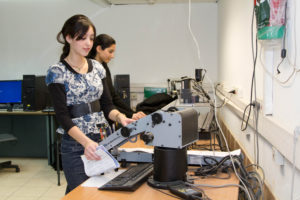By Stuart Hershkowitz

(JNS) Prior to the intensification of the Omicron variant, the Israeli economy had received multiple forecasts for strong growth in 2022. The Jewish state’s own finance ministry projected 4.7 percent growth for the economy this year (following 7.1 percent growth in 2021), while the OECD predicted 4.9 percent growth in Israel’s GDP for 2022 and 4 percent for 2023.
Both internal and external assessments have attributed the resilience of the Israeli economy during the COVID-19 pandemic to the country’s world-leading vaccine rollout. But what else can Israel do to further strengthen its economic position in these continuously uncertain times?
The unemployment rate is among the typical measures of a nation’s economic strength, yet the pandemic has added a new layer to the dynamics surrounding the workforce. Today’s environment poses the challenge of not only creating jobs and getting people back to work, but also convincing people to go back to work. In the United States, for instance, the so-called “Great Resignation” has seen record numbers of Americans quit their jobs (4.5 million in November 2021 alone). Factors that are driving this trend have included boosted federal and state unemployment benefits (earlier in the pandemic); the desire to leave retail jobs that do not allow for remote work and involve a high degree of potential exposure to coronavirus; and the inclination to use the pandemic to rethink one’s personal and professional trajectory.
Israel is no stranger to the challenge of lagging workforce participation. The employment rate for haredi men typically hovers around 50 percent, as many of them opt to study Torah on a full-time basis. Whether haredim or Arabs or other underserved populations, expanding employment among largely untapped demographic sectors represents a crucial way of ensuring Israel’s economic strength.

This is particularly true in the talent-starved sector of high-tech. Last year, State Comptroller Matanyahu Englman issued a report that documented 18,500 vacant positions in the Israeli high-tech industry, resulting from a shortage of skilled university graduates with training in the computer software and hardware fields. And make no mistake: Higher education is an indispensable pathway to such training. Basic certificate or vocational courses in computer programming do not provide students with the high-level, well-rounded skill set they need to effectively fill the current gaps for Israel’s technology-focused employers.
The Jerusalem College of Technology (JCT) has long worked to advance an academic solution to this employment challenge, striving to bolster Israel’s labor market by increasing access to technology-related educational and employment opportunities for underserved populations. The college’s haredi graduates attain an 89 percent employment rate, far exceeding the employment rate for haredi men throughout Israel. This past year, our Mechina (pre-academic) preparatory program, which helps religious Jews gain basic education in the STEM subjects that is required for entry into academia, saw a 20 percent increase in enrollment.
Further, 53 percent of all JCT’s computer science students are women, which is 18 percent higher than any other Israeli academic institution. The new Tal Campus for women, which is on track to break ground early this year, will expand the college’s impact on women’s empowerment. As the permanent home for up to 3,000 of JCT’s female students in nursing, computer science, electro-optics, industrial engineering, accounting and management, the campus will provide increased opportunities for national religious, haredi and Ethiopian women to pursue higher education and attain quality employment in scientific and high-tech industries.
The Omicron variant means that many sectors, including higher education, could once again be subjected to severe restrictions and disruptions.
Remote learning was a necessity at the outset of the pandemic, and it seems like academic institutions could now be headed back towards March 2020-style conditions. While JCT did its best to adapt to this unprecedented environment two years ago, students at our college and across the board have reported that distance learning is far from ideal. For instance, many haredi students have large families, inadequate workspaces at home and weak Internet connections—obstacles that make it exceedingly difficult to learn online.
Meanwhile, for all students, the absence of socialization when distance learning is implemented presents morale and mental-health challenges that should not be ignored.
Bar-Ilan University, Israel’s second-largest higher-education institution, has already transitioned to remote learning amid the Omicron crisis. But other major Israeli campuses have not yet followed suit, and the Israeli government should be applauded for its ongoing push for students of all ages to continue in-person learning.
“There is no reason for entire classes to automatically switch to distance learning when they have no confirmed cases” of COVID-19, said Israeli Education Minister Yifat Shasha-Biton recently.
In turn, the looming threat of school closures also ties into Israel’s economic outlook. A college campus is a microcosm of a city, and when we essentially shut down an entire city, we halt all of the economic growth and contributions that come with its day-to-day operations. That is why Israel must do everything in its power to keep our campuses open.
By expanding educational and employment opportunities among underserved populations, which happens to be a highly difficult proposition when college campuses are closed, Israel can take at least one key step towards weathering the storm of Omicron.
*
Stuart Hershkowitz is vice president of the Jerusalem College of Technology. Preceding provided by JNS.org.